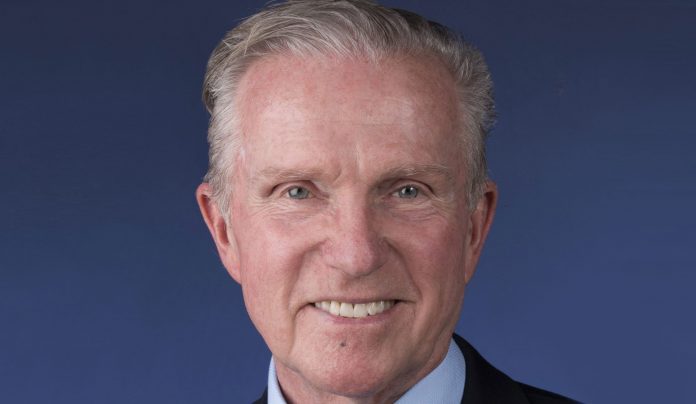One dimension of my daily work that I really enjoy is interviewing applicants to medical school. I serve on the College of Medicine Admissions Committee, which I’ve been doing for a number of years, and being a psychiatrist, I’m often tasked with interviewing a specific group of applicants, the ones who openly write that they have suffered from mental health symptoms in the past.
This is a sea change in medical education, refreshing and long overdue. Most applicants to medical school do not, nor are they required to, reveal that information. Competition is fierce for a spot in each year’s matriculating classes across the nation and compounding that is how much the entire process is mired in stigma. And not just stigma attached to psychiatric illness. Applicants are reluctant, if not terrified, to disclose anything about themselves that they fear could signify them as inferior, unworthy, or other, and that they would be denied entrance into the “hallowed halls” (quotation marks are intentional, as is a bit of sarcasm) of medical education.
And that is why I look forward to interviewing these courageous young women and men. I review their applications the day before so that I’m well prepared to ask not only the standard questions about their interest in medicine, their GPA and MCAT scores, study habits, volunteerism, research and stress-relieving activities, but also their disclosure. I’ve created below a composite and disguised example of what I might read embedded in the Personal Comments section of an application.
In my final year of high school, my parents separated. I was okay at first because I could see it coming, and I was relieved. I couldn’t wait to get away to college. But their divorce was ugly and they both leaned on me. During my second semester, my grades fell badly. But I studied harder and pulled them up, sort of. Then in my sophomore year, I couldn’t focus and got down. It took me a long time to go to student health counseling. But I did. That helped, and so did pills for depression. I still take them. But this explains why I made the Dean’s List only in my junior and senior years. There’s a lot of depression in my family. And my dad’s dad killed himself before I was born.
I am careful and respectful when I interview a candidate with this kind of story. Despite what they’ve written in their essay, they may not wish to elaborate. Asking blanket questions about medical and psychiatric conditions, including substance use disorders, is illegal, but interviewers are permitted to ask applicants about their ability to perform the functions of a medical student and whether they may require reasonable accommodations. Hence, with the above scenario as an example, and his mentioning still taking medication, I might ask the applicant if he’s currently in care. And if so, are his medications being monitored by a psychiatrist or primary care physician. I would like to have a sense of how he’s doing and whether he feels back to his baseline, and if he believes he’s ready to tackle the academic expectations of medical school. I would also apprise him of the counseling service at our school that is available to medical students. I am mindful of the context, that I’m interviewing a candidate for medical school, not a new patient in my office. The rules of privilege and access are profoundly different.
I ask a question like this: “Your decision to be transparent about your mental health history in your application is commendable. Tell me about that?” Most say that this was a decision that took significant time. They have usually shared their inclination to be open with their parents, partner or spouse, pre-health committee advisor, or therapist—and may have received mixed advice. But mostly they say things like this: “At the end of the day, I felt strongly that I needed to include this, to be authentic. This is a part of who I am. I know what it’s like to be ill, vulnerable, and to seek professional help. My doctors have been wonderful. And inspirational. Having been a patient myself, I can better empathize with my patients. I also know what I found so helpful in a doctor and what I didn’t. I think that this journey will make me a better doctor.” Can’t argue with that! And after a brief pause, most add this sentence: “And if a medical school that I’ve applied to doesn’t like what I’ve written and tosses my application in the waste basket, then I don’t want to study medicine there.”
After interviewing candidates like this, I invariably reflect on how far we’ve come in medicine from when I applied to school back in the 1960s. It gives me great pleasure to know that these highly talented young doctors of tomorrow refuse to be hamstrung or deterred by their humanness, their vulnerabilities. That they have the resolve to challenge the archaic and dangerous confines of stigma that affect so many of today’s physicians. To put an end to the needless suffering. In the words of Nelson Mandela:
“The youth of today are the leaders of tomorrow.”
Dr. Myers is Professor of Clinical Psychiatry and immediate past Vice-Chair of Education and Director of Training in the Department of Psychiatry & Behavioral Sciences at SUNY-Downstate Medical Center in Brooklyn, NY. He is the author of 8 books, the most recent of which are “Why Physicians Die by Suicide: Lessons Learned from Their Families and Others Who Cared” and “The Physician as Patient: A Clinical Handbook for Mental Health Professionals” (with Glen Gabbard, MD). He is a specialist in physician health and has written extensively on that subject. Currently, Dr. Myers serves on the Advisory Board to the Committee for Physician Health of the Medical Society of the State of New York. He is a recent past president (and emeritus board member) of the New York City Chapter of the American Foundation for Suicide Prevention.
The views expressed on this blog are solely those of the blog post author and do not necessarily reflect the views of the Psychiatry & Behavioral Health Learning Network or other Network authors. Blog entries are not medical advice.
This blog was first published on 02 February, 2021 on Psych Congress










Thank you Dr Myers for writing this very important and commendable article about authenticity in medical school applicants, who are upcoming leaders in medicine. Having almost died after my first child’s death at full gestation and navigating that unbelievable shock and grief, I learned the benefit of being a patient, being vulnerable and being authentic. I was an emergency medicine doctor at the time, as was my husband. We were not comfortable being in the receiving role. But praise God for caring, competent colleagues willing to ‘take us on’. It is daunting to be a ‘physicians’ physician’. Stigma IS real. And finding safe places within our caring community is very much needed in the House of Medicine. One doctor ‘down’ deprives a potential panel of care to a couple thousand patients. When will corporate medicine, hospital administrations and other entities always trying to ‘shame’ us, put us down and blame us recognize their lack of support is not only counter productive but exposing their double standards regarding ‘quality care’ and endorsing ‘good outcome’. Physicians are patients too.
Thank you Dr Seaman for your wise words.